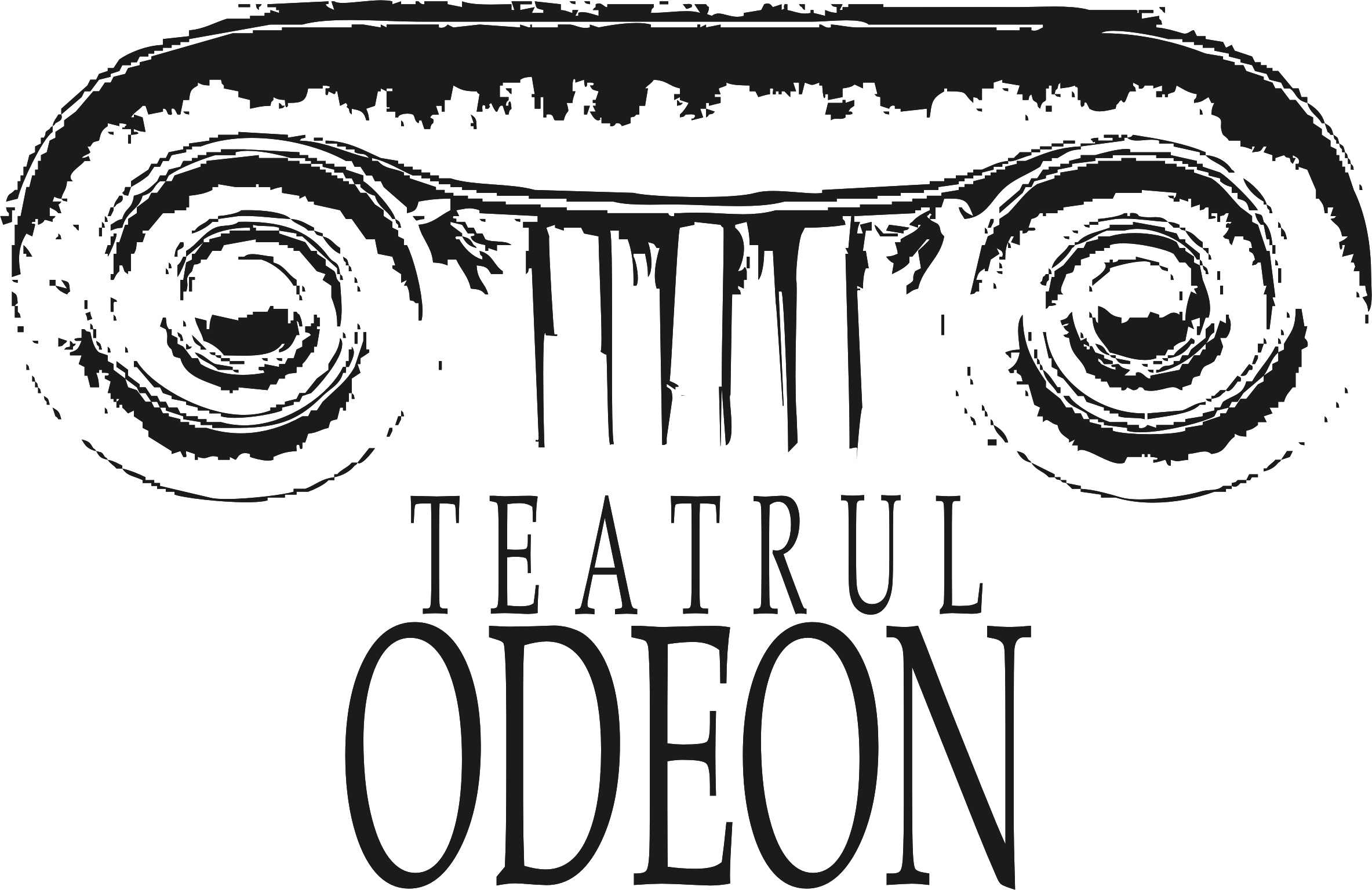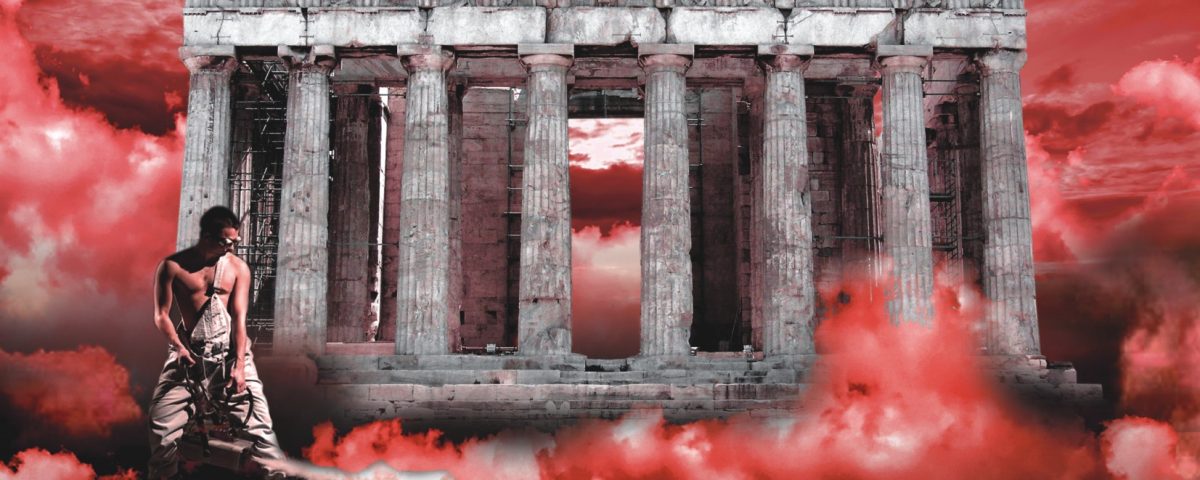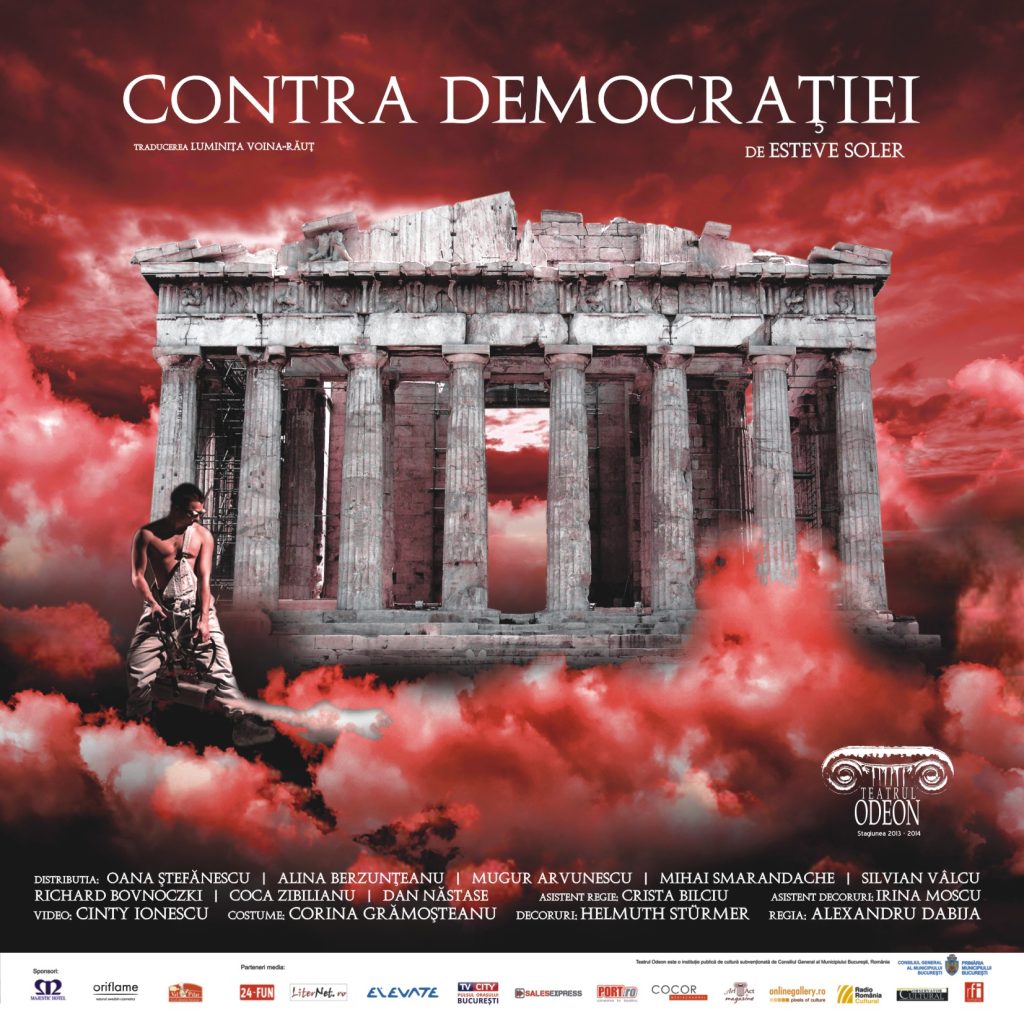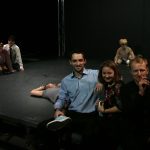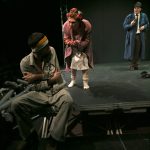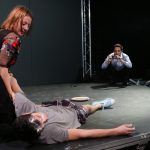The play is closely connected with Dabija’s orientation towards the absurd (in the same theatre Ionescu put up Five short plays) and it’s benefic for Odeon, since the Studio Hall is slowly starting to build its own identity based on contemporary drama and aesthetics.
Oana Stoica – Dilema Veche (February, 6th-12th, 2014)
Liviu ORNEA: Let me begin with the list of best shows I have seen in 2014: Against democracy (by Esteve Soler, Director Alexandru Dabija, Odeon Theatre) (…).
Liviu ORNEA and Iulia POPOVICI – Observatorul Cultural, no. 496, January, 8th-14th, 2015
We are living in an absurd world, seems to be saying Soler, and the role of the theatre is to bring into attention this absurdity. We can even laugh at its horrors, the production at Odeon seems to suggest. The promo clip for Against democracy was absolutely right (even if it was ironic) – this is not a political play. But it’s one that should be seen.
Iulia POPOVICI – Observator Cultural (No. 710 of 14.02.2014)
In the play `Against Democracy` or `on the sick normality we live in`I experienced an excellent combination of humor and emotions at the Odeon Theatre. Before revealing what the show is about, I must say that it shocked me, disgusted me, made me feel fear, I laughed, I left having questions and now I am looking for their answers. To make the long story short: it was emotional. And that is was I’m after when I go to a play: emotions.
Daniela Staicu – koolhunt.ro, January, 27th, 2014
There are some situations in which things have to be done loudly. Punk music cannot be played in sourdine, boxing, unlike the sophisticated martial arts, cannot be anything but full-contact, and rugby cannot be played indoors. The director Alexandru Dabija understood that a text called `Against Democracy` will not be highlighted if played softly, but it has to be thrown in the spectator’s face with all the scenic and verbal violence needed. Let us be clear: this is not regarding the eccentricity of those creators that want to shock with any means in order to keep their revolutionary glory and to hide their lack of depth in ideas, but instead is regarding a clear decision of the director to highlight the serious signals of the text. (…)
The production is presented in the moldable Studio Hall of Odeon Theatre, and the space is configured with stylistic simplicity by the artist stage designer Helmut Stürmer and completed by the video projections imagined by Cinty Ionescu. Supported by the natural translation of the text (Luminiţa Voina-Răuţ) and the costumes (Corina Grămoşteanu), the actors have the liberty to focus and dedicate themselves to the comic mechanisms of the directorial indications. They do it with voluptuosness, even though my intuition tells me that the rehearsals with Alexandru Dabija had numerous savoury moments that could not be included in the show, the result of the effort being a rigorous one.
Yes, I have seen spectators that left during the play. They were either too sensitive, either eager for recreational theatre (some jokes, some famous actors that have to be seen live, not only on TV), spectators that got scared. From this we can conclude that the catharsis Aristotle was talking about was reached, that maybe fear and mercy activated, the spirits purified and the director won. With the help of the play writer of course that proves how the total freedom actually limited us in severe restrains, more rough than the bigotry or the political ideology. They also have another directorial help, extremely important: the music. An American experimental indie-rock band, Cloud Cult, can be loudly heard in the speakers between the moments.
With the production at Odeon Theatre, Alexandru Dabija places on our ears a stethoscope where you can hear the ill heart of this century, having the faith that we will take a look in the mirror and we’ll see the falsity, the evil and the absurd on which we build what we call modern life. Castigat ridendo mores the classical poet would say. Now, in the post-post-post… and so called democracy, maybe there is no time left to correct the bad habits, but at least we can laugh at them.
Maria Zărnescu – yorick.ro, March, 25th, 2014
The show directed by Alexandru Dabija in a stage design orchestrated by a few elements of impact signed by Helmuth Stürmer, has a powerful message, remanent, precisely built, clear, respectful and in the spirit of Soler’s text. It couldn’t be done in any other way. The dramatic material has an obvious personality, one that would make anything else useless ballast.
Răzvana Niță – port.ro, January, 27th 2014
Against Democracy (directed by Alexander Dabija, Odeon Theatre) is focusing on the shock effect that the rough reflection of reality provokes, all seen in the encoding of a dystopia not that far from the current understanding of democracy. Against Democracy is, in fact, a critic to the manner democracy was abusively confiscated by the ones who saw a simple opportunity to annihilate its fundamental principle: individual’s rights.
Silvia Dumitrache, Observatorul Cultural, nr. 496, January, 8th-14th 2015
